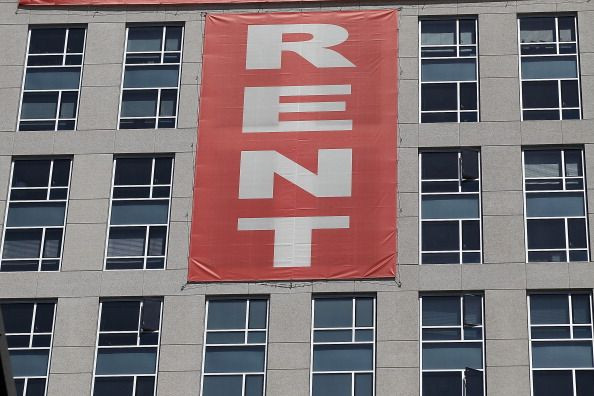US Economy: Why Rent Prices Surged In 2021 And The Outlook For 2022
Average rents in the U.S. climbed 14% in 2021 and there will not be any relief in 2022.
American renters can expect a 10% jump in prices in 2022, according to a report on Jan. 10 from the Federal Reserve Bank of New York. The report cited inflation, household finances and the labor market as reasons for the jump.
During the pandemic, there was sharp growth in second-tier rental markets, as Americans sought cities where their money initially would go farther, thus driving prices up. Many renters favored moving to more suburban areas over densely populated areas like cities.
December marked the sixth consecutive month in which rent-price growth for zero- to two-bedroom units reached double digits. The end of 2021 saw a 10.1% year-over-year growth in median rent prices across all types of units.
The Financial Samurai predicts that this increase in rent prices will slow once "enough people finally move out of their parents’ homes or shed roommates, and housing construction bottlenecks decrease."

Two-bedroom units saw the highest rate of growth for 2021 with an average 11.7% growth rate, while one-bedroom units saw a 10% growth rate and studios had a 6.1% growth rate. Miami saw a median rent of $2,850 in December, which is up 49.8% from 2020, while other Florida cities like Tampa and Orlando saw 34% growth or more.
Fascinating stuff here on residential rent increase year over year. pic.twitter.com/HzqC58AGuF
Jeffrey A Tucker (@jeffreyatucker) January 31, 2022
The report noted how rents have been tumultuous throughout the pandemic, with a stark decrease in growth in 2020 followed by a flattening out early in 2021, then a swift increase in growth in the summer which continued through the second half of the year.
Mark Zandi of Moody's Analytics told CNBC that "there’s a lot of evidence that the lack of housing closer to where the demand is and urban cores is having a meaningful negative consequence on long-term economic growth."
Factors that will contribute to average rent increases in 2022 include those younger populations who had trouble at the start of the pandemic beginning to move out and the supply chain continuing to produce shortages in materials. Higher labor costs and various eviction laws in place during the pandemic beginning to loosen, which will allow landlords to raise prices, will also contribute to rent price growth in 2022.
© Copyright IBTimes 2025. All rights reserved.






















